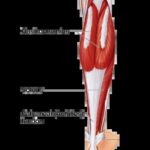Left-sided abdominal pain is a common complaint that can range from mild discomfort to severe agony. Understanding the potential causes is crucial for seeking appropriate medical care. This article explores the organs located in the left abdomen, common and serious causes of pain, and when to see a doctor.
 Left Sided Abdominal Pain Banner 2
Left Sided Abdominal Pain Banner 2
The left side of your abdomen houses several vital organs, including the stomach, spleen, pancreas, parts of the large intestine, and, in women, the left ovary and fallopian tube. Pain in this area can stem from issues with any of these organs.
Common Causes of Left Abdominal Pain
Many instances of left abdominal pain are related to relatively benign conditions:
- Digestive Issues: Indigestion, gas, constipation, diarrhea, food intolerances, and food poisoning are frequent culprits. These often cause cramping or aching pain. Dietary changes and over-the-counter medications can often provide relief.
- Infections: Viral gastroenteritis (stomach flu) and urinary tract infections (UTIs) can cause inflammation and pain in the left abdomen. These conditions usually require medical treatment.
- Menstrual Cramps: Women often experience left-sided abdominal pain during menstruation due to uterine contractions. Over-the-counter pain relievers and heat therapy can help manage the discomfort. Ovulation can also cause mild, temporary pain.
Serious Causes of Left Abdominal Pain
While many causes are minor, left abdominal pain can also signal more serious health problems:
- Pancreatitis: Inflammation of the pancreas can cause severe, sharp pain in the upper left abdomen, often radiating to the back.
- Pancreatic Cancer: Persistent abdominal pain accompanied by fatigue, weight loss, jaundice, and changes in bowel habits could indicate pancreatic cancer.
- Splenomegaly (Enlarged Spleen): Pain or a feeling of fullness in the upper left abdomen, along with early satiety after eating, may suggest an enlarged spleen.
- Gastritis: Inflammation of the stomach lining can cause pain, burning, and nausea. This pain can occur before or after meals.
- Stomach Cancer: Similar to gastritis, stomach cancer can cause persistent pain and digestive issues.
- Kidney Infection: Pain in the flank or lower left abdomen, along with frequent urination, burning during urination, and fever, can indicate a kidney infection.
- Kidney Stones: Severe, cramping pain in the lower left abdomen or back that radiates to the groin could be caused by kidney stones.
- Diverticulitis: Inflammation or infection of small pouches in the colon can cause pain, fever, and changes in bowel habits.
- Endometriosis: This condition, where uterine tissue grows outside the uterus, can cause chronic pelvic pain that may extend to the left abdomen.
- Ovarian Cyst Rupture: A ruptured ovarian cyst can cause sudden, sharp pain in the lower left abdomen.
- Ectopic Pregnancy: A pregnancy that occurs outside the uterus, often in the fallopian tube, can cause severe abdominal pain and requires immediate medical attention.
- Pelvic Inflammatory Disease (PID): An infection of the female reproductive organs can cause lower abdominal pain, fever, and unusual vaginal discharge.
- Ovarian Cancer: Persistent abdominal pain, bloating, feeling full quickly after eating, and changes in bowel or bladder habits can be symptoms of ovarian cancer.
When to See a Doctor
While occasional mild abdominal pain is normal, you should seek medical attention if you experience:
- Severe pain
- Fever
- Persistent vomiting or diarrhea
- Blood in your stool or urine
- Pain that worsens or doesn’t improve after a few days
- Yellowing of the skin or eyes (jaundice)
- Swelling or tenderness in your abdomen
- Difficulty breathing
Left-sided abdominal pain can have various causes, ranging from minor digestive issues to life-threatening conditions. Don’t hesitate to consult a healthcare professional if you are concerned about your symptoms. Early diagnosis and treatment are crucial for ensuring the best possible outcome.

